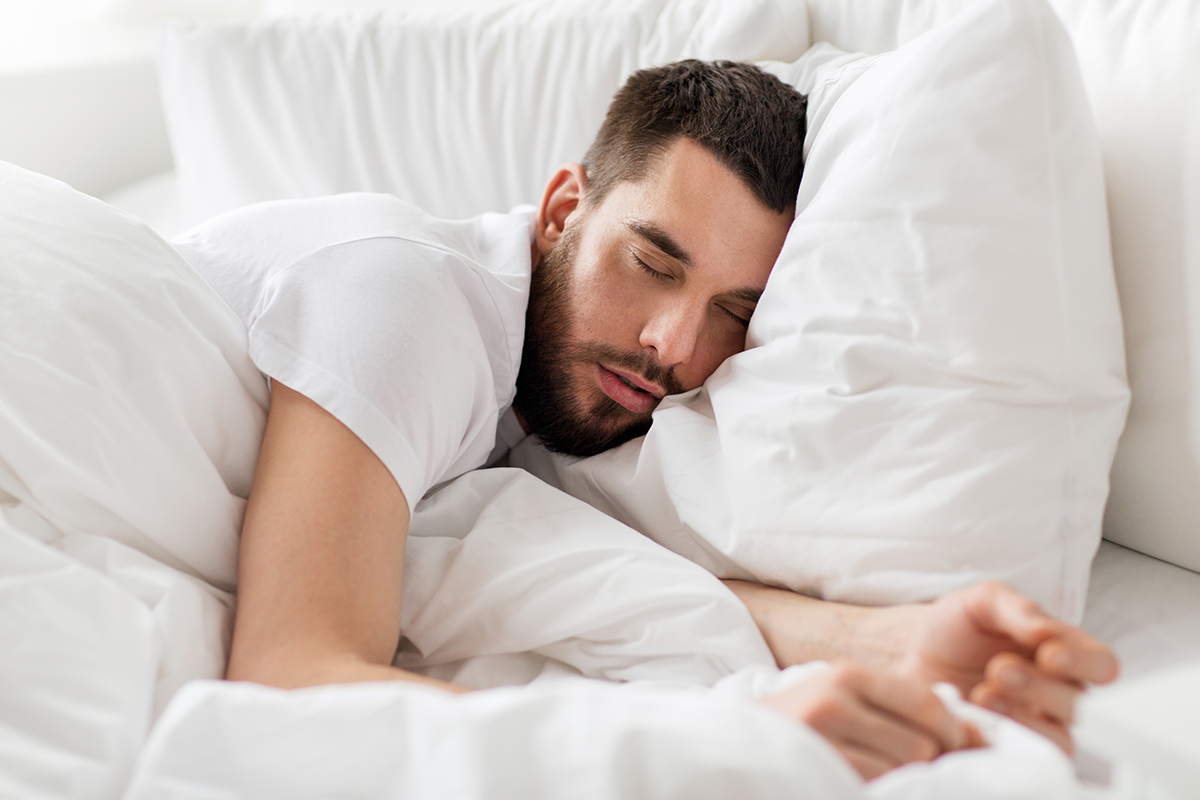Physical activity is known for boosting energy. That’s because exercise increases your heart rate and blood flow, making you feel awake. It’s one of the many benefits of working out.
However, it’s also possible to get tired after exercise. This is especially common after workouts when you have multiple sclerosis (MS). Physical activity, after all, requires a lot of energy and stamina.
If you feel tired after a workout, you may want to take a nap. In this article, I’ll discuss the pros and cons of post-exercise napping, along with tips for doing it right.
Is this normal?
In general, feeling sleepy after exercise isn’t a cause for concern. It’s normal to feel tired after physically exerting yourself.
This is more likely for us MSers. For example, you can expect your energy levels to dip after doing the OptimalBody Training Program for MS.
On the other hand, a lighter workout like a leisurely walk probably won’t make you tired.
Everyone is different, though, despite the common denominator of MS. Your energy after exercise depends on many factors, including:
- Your fitness level
- Your diet
- Your level of hydration
- Type of exercise
- Duration, intensity, and frequency of exercise
- Underlying MS symptoms
- How much sleep you got the night before
In some cases, feeling sleepy after exercise might be a sign that you’ve pushed yourself too hard for your level of MS fatigue. In this case, you need to adjust the number of sets and reps you are performing in the Training Method you are doing.

Why does it occur?
Post-workout sleepiness is caused by the body’s natural response to physical activity.
When you exercise using my training methods, your muscles repeatedly contract. They use adenosine triphosphate (ATP) to produce these contractions. ATP is a molecule that provides energy for your cells.
Your ATP levels decrease as you continue working out. This reduces your muscles’ ability to function, resulting in muscle fatigue. It’s known as peripheral fatigue.
Your central nervous system (CNS) also plays a role. During exercise, your CNS repetitively fires signals to activate your muscles. The firing, however, will become less charged the longer you work out. And with MS as a detriment to the signals being fired to the muscles, fatigue can come on more easily and with more intensity.
Additionally, exercise increases various neurotransmitters, including dopamine and serotonin. These changes reduce your CNS’ capacity to activate your muscles, leading to central fatigue. As a result, you may feel tired and want to take a nap.
Pros and Cons
If you’re thinking of taking a post-workout nap, consider the potential pros and cons.
The advantages of napping after a workout include:
- Muscle recovery. Taking a nap after exercise can support muscle recovery. When you sleep, your pituitary gland releases growth hormone. Your muscles need this hormone to repair and build tissue. This is essential for muscle growth, athletic performance, and reaping the benefits of physical activity.
- Improved sleep debt. Sleep deprivation hinders muscle recovery. It also slows down cognitive function and weakens the immune system, contributing to poor athletic performance. By taking a nap, you can lessen the effects of sleep deprivation by getting more rest.
- Reduced physical fatigue. Feeling sleepy after exercise is a sign of muscle fatigue. However, as napping encourages muscle recovery, it decreases fatigue. This can make it easier to handle other obligations during the rest of the day.
- Increased mental alertness. Similarly, taking a nap after exercise can give you a boost of mental energy. If you woke up early to work out, a nap can help you feel less tired.
There also some drawbacks to napping after a workout. They include:
- Poor nap quality. Exercise increases your endorphins and body temperature. These exercise-induced changes can keep your brain and body awake. That’s why some people avoid working out just before bed. Therefore, even if you want to nap, it might be difficult to get quality rest. It might take time to determine if post-workout naps are right for you.
- Increased grogginess. If you take a long nap, you might enter the deeper stages of sleep. You’ll feel groggy and disoriented when you wake up. This feeling, known as sleep inertia, can last for up to 30 minutes.
- Disrupted nighttime sleeping. Although napping can decrease sleep debt, it can negatively affect nighttime sleep. You might have trouble falling asleep later at night. Plus, if you have a sleep disorder, napping may worsen your symptoms. Talk to your doctor if you feel the urge to regularly taking naps.
How long should you nap?
Limit your nap to 20 minutes. Avoid napping for 30 to 60 minutes. Otherwise, you may enter deep sleep and wake up with sleep inertia.
Set an alarm for 25 to 30 minutes. This will give you some time to wind down before a 20-minute nap.
If you feel tired after an evening workout, it might be worth going to bed early instead. Just be sure to hydrate and eat a recovery meal first.
Other tips
To get the most out of your post-workout nap, keep these tips in mind:
- Choose the right time. It’s a good idea to avoid napping later in the day. Try to nap between 1:00 p.m. and 3:00 p.m., when your energy naturally starts to drop. If you nap too late in the day, you might be unable to sleep at night.
- Stretch. If you haven’t already, stretch your muscles before napping. This will help reduce muscle fatigue and stiffness when you wake up.
- Rehydrate first. Similarly, it’s important to drink water after working out. Be sure to rehydrate before taking a nap. After you wake up, keep drinking water to hydrate your body.
- Keep the bedroom cool. Generally, it’s more comfortable to sleep in a cooler room. Set your room’s temperature between 60 to 67°F. With MS cool air is a plus.
- Reduce noise. When the rest of the world is awake, it can be difficult to take a peaceful nap. A fan, air conditioner, or white noise machine can help mask outside noise. You can also use ear plugs.
- Darken the room. Try wearing a sleep mask or closing the blinds. This will reduce your exposure to bright light, making it easier to get quality rest. If you plan to make naps a part of your daily routine, consider investing in blackout curtains.
- Prioritize nighttime sleep. Naps aren’t a substitute for nighttime sleep. Make it a priority to get enough sleep that night, even if you napped during the day.
When To Talk with a Pro
Take note of how you feel after exercising. Talk to your doctor if you:
- feel very sleepy after every workout
- repeatedly fall asleep without realizing it
- have a hard time waking up from short naps
- are unable to nap even though you’re tired
These symptoms might indicate a medical condition unrelated to physical activity or your MS.
The Bottom Line
It’s common to get tired after a long or tough workout, especially as a MSer. In general, this occurs because your muscles run out of energy. Your central nervous system also loses its ability to keep moving your muscles. This causes muscle fatigue, making you feel tired.
Napping can help facilitate muscle recovery and give you a boost of energy. Limit your nap for 20 minutes to avoid feeling groggy. It’s also best to avoid napping too close to bedtime, which can disrupt your nighttime sleep.
Overall, exercise should improve your energy levels.
Are you a personal trainer wanting to expand your services? Check out MedFit Classroom’s online course, Multiple Sclerosis Fitness Specialist.
David Lyons, BS, CPT, is the founder of the MS Bodybuilding Challenge and co-founder of the MS Fitness Challenge with wife Kendra. He has dedicated his life to helping people with MS understand and be educated on the importance of fitness in their lives. He is an author and sought after motivational speaker, dedicated to helping others by sharing the lessons gained from his life experience. His most recent book, Everyday Health & Fitness with Multiple Sclerosis was a #1 New Release on Amazon at its release. He is the 2013 recipient of the Health Advocate of the Year Award; in 2015, he received the first ever Health Advocate Lifetime Achievement Award, and the Lifetime Fitness Inspiration Award in Feb 2016. In 2017, David received the Special Recognition Award from the National Fitness Hall of Fame.

